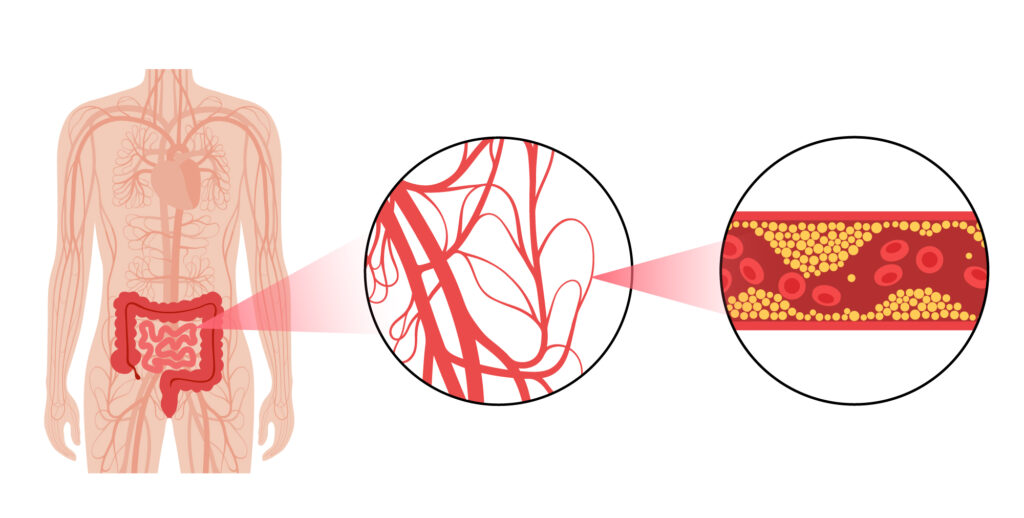What is mesenteric arterial ischemia?
It occurs when there is poor circulation to the arteries that carry blood to the mesenteric organs such as the stomach, liver, colon, and intestine. Any lack of circulation to these organs can seriously compromise their function.
Symptoms of mesenteric arterial ischemia
Severe abdominal pain. This can be a sudden and very severe pain sometimes accompanied by nausea and vomiting.
The most common symptom is abdominal pain after eating. It can last from 15 minutes to an hour but can continue for up to two hours.
It usually occurs after each meal and may be associated with nausea, vomiting, and diarrhea.
Another symptom is progressive weight loss since most patients stop eating for fear of pain.
Causes of mesenteric arterial ischemia
Acute mesenteric ischemia is commonly caused by a clot that usually travels to and occludes the mesenteric arteries.
These clots can originate in the heart and are more common in patients with arrhythmias.
Chronic mesenteric ischemia is frequently secondary to atherosclerosis, which is the hardening of the artery walls.
This is something that takes place progressively where cholesterol and calcium plaques eventually reduce blood flow and block these arteries, compromising circulation to these vital organs.
Diagnosis of mesenteric arterial ischemia
Its diagnosis must have a high index of suspicion and a Doppler ultrasound and a CT Angiography must be performed, as well as a selective angiography of these arteries.
Treatment of mesenteric arterial ischemia
Treatment should be aimed at restoring blood flow to the affected organs such as the intestine.
This must be done before there is irreversible damage to these organs.
Treatment is aimed at eliminating these thrombi with thrombolytic therapy, which means injecting drugs that dissolve thrombi directly into these arteries.
In chronic mesenteric ischemia, minimally invasive procedures can be performed such as angiography, balloon angioplasty, and stenting.
In case of not being a candidate for this procedure, open surgery will be required and a bypass surgery must be performed to restore blood flow to these organs.
At ABC Medical Center’s Cardiovascular Center, we can provide you with specialized care. Contact us!
Fuente:
Dr. Salomón Cohen Mussali – Vascular and Endovascular Surgery specialist at ABC Medical Center.



